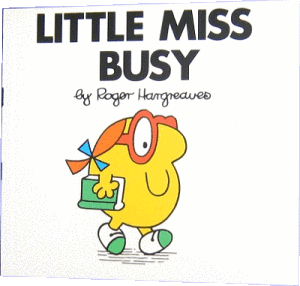
by Julia Felton | Jun 19, 2013
Time is the great equalizer. Everybody gets the same amount: 24 hours in a day, 60 minutes in an hour. We can’t save time or accumulate or rearrange it. We can’t turn it off or on. It can’t be replaced.
But these days, it seems as if the lament of not having enough time has become a national anthem. Everywhere people find themselves constantly in a rush, over-booked and over-scheduled with no time off. Life is accompanied by the ongoing stress of not enough time. And sometimes doing too much and being too busy can be a way of numbing feelings or disguising depression or anger.
Though it may not always seem so, how we fill our time and how we spend it is our choice. Answer the following questions to discover if you’re caught up in the “too-busy” cycle.
- I constantly find myself doing “urgent” things and trying to catch up.
- I allow myself to drift into obligations when I don’t know how much time or energy they’ll require.
- I find myself running from when I get up in the morning until I go to bed at night. I’m always tired and never feel like I accomplished enough.
- I seldom schedule a day off for myself and when I do, I tend to fill it with activities.
- I don’t make time for “self-care” activities: physical exercise, nurturing or “pampering” myself, cultural stimulation, spiritual well-being, learning something new, playing, or simply doing nothing.
- I seldom have time to do the things I really love.
- My work and project areas are cluttered with “I’ll look at this later” stacks and “to-do” piles.
- I often miscalculate how long certain activities will take.
- I often miss deadlines or work long hours to meet a deadline.
- I respond to interruptions such as phone calls, faxes, email, beepers and pagers, and allow them to take me off track.
- I try to keep things in my head rather than making lists. If I do make a daily “to-do” list, it’s impossible to complete in a day.
- I tend to move from one urgent thing to the next, rather than working toward specific goals and objectives.
- I find myself constantly wishing I had more time or projecting an imaginary future when I have more time, making comments such as “as soon as…” or “next year…”
- I spend time running errands and rushing because I didn’t plan well enough.
- I spend time doing things I could pay someone else to do.
- I often do things because I “should,” or continue to do things that no longer fit who I am.
- Other people complain that my schedule doesn’t allow enough time for them.
Are you too busy? If so, think about three things that you can let go of and start saying No to things. No-one will value your time unless you value your time. Recently, I had to let go of a client that was draining me of energy and being demanding of my time. Sure it was a hard decision but once I released that client a couple of my ideal clients turned up instead. Funny how that works!
If you want to stop being busy then why not apply for one of the limited number of strategy sessions I offer each month, so that I can help you grab control and create a Joined Up Business.

by Julia Felton | Mar 17, 2013
There are many ways to avoid success in life, but the most sure-fire just might be procrastination. Procrastinators sabotage themselves. They put obstacles in their own path. They actually choose paths that hurt their performance. So would why people do this? It’s a question that I have been pondering on a lot lately as I actively observe myself sabotaging parts of my business.
Two of the world’s leading experts on procrastination: Joseph Ferrari, Ph.D., associate professor of psychology at De Paul University in Chicago, and Timothy Pychyl, Ph.D., associate professor of psychology at Carleton University in Ottawa share their thoughts.
- Twenty percent of people identify themselves as chronic procrastinators. For them procrastination is a lifestyle, albeit a maladaptive one. And it cuts across all domains of their life. They don’t pay bills on time. They miss opportunities for buying tickets to concerts. They don’t cash gift certificates or checks. They file income tax returns late. They leave their Christmas shopping until Christmas eve.
- It’s not trivial, although as a culture we don’t take it seriously as a problem. It represents a profound problem of self-regulation. And there may be more of it in the U.S. than in other countries because we are so nice; we don’t call people on their excuses (“my grandmother died last week”) even when we don’t believe them.
- Procrastination is not a problem of time management or of planning. Procrastinators are not different in their ability to estimate time, although they are more optimistic than others. “Telling someone who procrastinates to buy a weekly planner is like telling someone with chronic depression to just cheer up,” insists Dr. Ferrari.
- Procrastinators are made not born. Procrastination is learned in the family milieu, but not directly. It is one response to an authoritarian parenting style. Having a harsh, controlling father keeps children from developing the ability to regulate themselves, from internalizing their own intentions and then learning to act on them. Procrastination can even be a form of rebellion, one of the few forms available under such circumstances. What’s more, under those household conditions, procrastinators turn more to friends than to parents for support, and their friends may reinforce procrastination because they tend to be tolerant of their excuses.
- Procrastination predicts higher levels of consumption of alcohol among those people who drink. Procrastinators drink more than they intend to—a manifestation of generalized problems in self-regulation. That is over and above the effect of avoidant coping styles that underlie procrastination and lead to disengagement via substance abuse.
- Procrastinators tell lies to themselves. Such as, “I’ll feel more like doing this tomorrow.” Or “I work best under pressure.” But in fact they do not get the urge the next day or work best under pressure. In addition, they protect their sense of self by saying “this isn’t important.” Another big lie procrastinators indulge is that time pressure makes them more creative. Unfortunately they do not turn out to be more creative; they only feel that way. They squander their resources.
- Procrastinators actively look for distractions, particularly ones that don’t take a lot of commitment on their part. Checking e-mail is almost perfect for this purpose. They distract themselves as a way of regulating their emotions such as fear of failure.
- There’s more than one flavor of procrastination. People procrastinate for different reasons. Dr. Ferrari identifies three basic types of procrastinators:
- arousal types, or thrill-seekers, who wait to the last minute for the euphoric rush.
- avoiders, who may be avoiding fear of failure or even fear of success, but in either case are very concerned with what others think of them; they would rather have others think they lack effort than ability.
- decisional procrastinators, who cannot make a decision. Not making a decision absolves procrastinators of responsibility for the outcome of events.
- There are big costs to procrastination. Health is one. Just over the course of a single academic term, procrastinating college students had such evidence of compromised immune systems as more colds and flu, more gastrointestinal problems. And they had insomnia. In addition, procrastination has a high cost to others as well as oneself; it shifts the burden of responsibilities onto others, who become resentful. Procrastination destroys teamwork in the workplace and private relationships.
- Procrastinators can change their behaviour—but doing so consumes a lot of psychic energy. And it doesn’t necessarily mean one feels transformed internally.
Can you determine from this article why you procrastinate? For me self-regulation and planning are the keys, as well as having the perseverance to continue against the odds. One thing I do know is that I don’t procrastinate with tasks I just love doing. It’s just the things that I hate, so why do them? Increasingly to avoid procrastination I am seeking ways to focus on the things I excel at in business and outsource and delegate those tasks that take me out of flow and are a challenge.
So how do you find out the tasks that you are best suited to do? Take a Talent Dynamics test and find out. It’s helped me so much.

by Julia Felton | May 6, 2011
So apologies for not blogging much (at all) last month but time just seemed to fly by. With the weather improving I have managed to spend more time with the horses and as usual they have been teaching me more lessons than sometimes I wanted to learn.
The first lesson I have been reminded of by my horses is for the need to plan ahead (perhaps if I had done that I might have managed to get in the odd blog). Last month my horses threw me a few curve balls by all getting sick at the same time when I was away teaching in Dorset. Maybe if I had had some contingency plans(a Plan B) things would have been less stressful for us all. When faced with challenges such as I experienced my practical side takes over and I just get on with things, but what I was reminded of is how for others that transition is not so easy. They find it difficult to move to plan B and whilst I moved there quite effortlessly my inability to communicate clearly to them made this transition challenging. Maybe if I had planned ahead more, then things would have been easier for everyone.
I recently came across this acrostic from John C. Maxwell regarding the importance of planning ahead which I just love.
P – predetermine your course of action
L – lay out your goals
A – allow time for adjustments
N – notify key personnel
A – allow time for acceptance
H – head into action
E – expect problems
A – always point to the positive
D – daily review
I think this sums up so brilliantly the best way to approach anything in life. Particularly it reminds me that we should expect problems. That’s normal but all too often we get discouraged and give up. Focus on the positive at all times because when we are immersed in a project we all too often forget to acknowledge all the success that we have had along the way. A daily review is a great way to keep on track but at the end of the day all great plans will stay that way unless you take action. I’m reminded of John Assaraf once telling me “are you taking action Julia or are you living on hopeium”. We are hope for anything we want but unless we take action to translate those plans into something nothing will change.
So my question for you today is are you living a Hopeium Life or are you taking action to PLAN AHEAD. As always comments are welcome.







